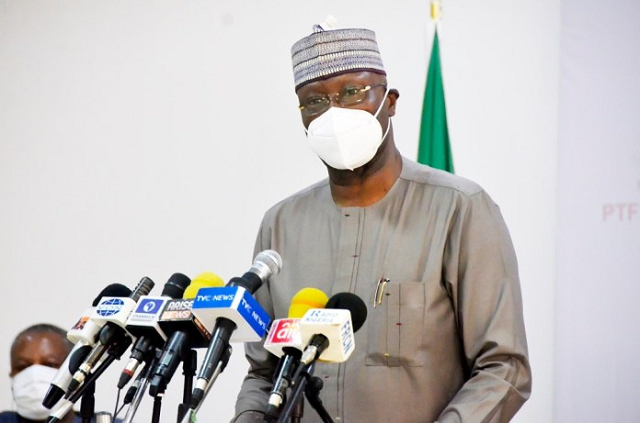The Secretary to the Government of the Federation (SGF), Boss Mustapha has stated that over thirty percent of Nigeria’s foreign exchange is spent on the importation of petroleum.
He made the disclosure on Tuesday in his closing remarks at the Mid-Term Ministerial Performance Review Retreat which took place at the Presidential Villa, Abuja.
He said, “Both the fiscal and monetary authorities must work closely together to achieve appropriate monetary and fiscal policy mix.
“To manage exchange rate better; there is a need to fix the education and health sectors so that Nigerians can study at home and receive medical care at home, thereby saving the huge foreign exchange expended on overseas education and medical care.
“Up to 30% of Nigeria’s foreign exchange is spent on petroleum imports; when projects like Dangote Refinery come on stream, and our refineries are fixed, they will save and also generate foreign exchange, and we can have a much-improved exchange rate regime.
READ ALSO: Nigeria Needs Additional 200,000 Security Personnel — Fayemi
“Monetary Policy Committee (MPC) of the CBN is determined to pursue price stability that is good for economic growth.”
Also, the SGF noted that there is a need to pragmatically deal with the issues of oil subsidy and ensure that subsidy removal does not further choke the economy.
“Ensure effective implementation of the Medium-Term National Development Plan, and work with States to domesticate the Plan in their respective states.
“Pursue improvement in revenue and revenue collection efficiency through better implementation of the Strategic Revenue Growth Initiatives (SRGI).
“Population census and housing survey have been provided for in the budget to be effected by 2022.”
Speaking on agriculture and food security, Mustapha stated that the Ministry of Agriculture and Rural Development is working to develop a new policy for 2020 – 2025.
He said the Federal Ministry of Transportation will renew efforts on passing the Nigeria Railway Corporation (NRC) Bill that will unbundle the NRC and allow PPPs in operations of the railway.
“However, priority is on completing and operationalizing the ongoing railway projects,” he said.












